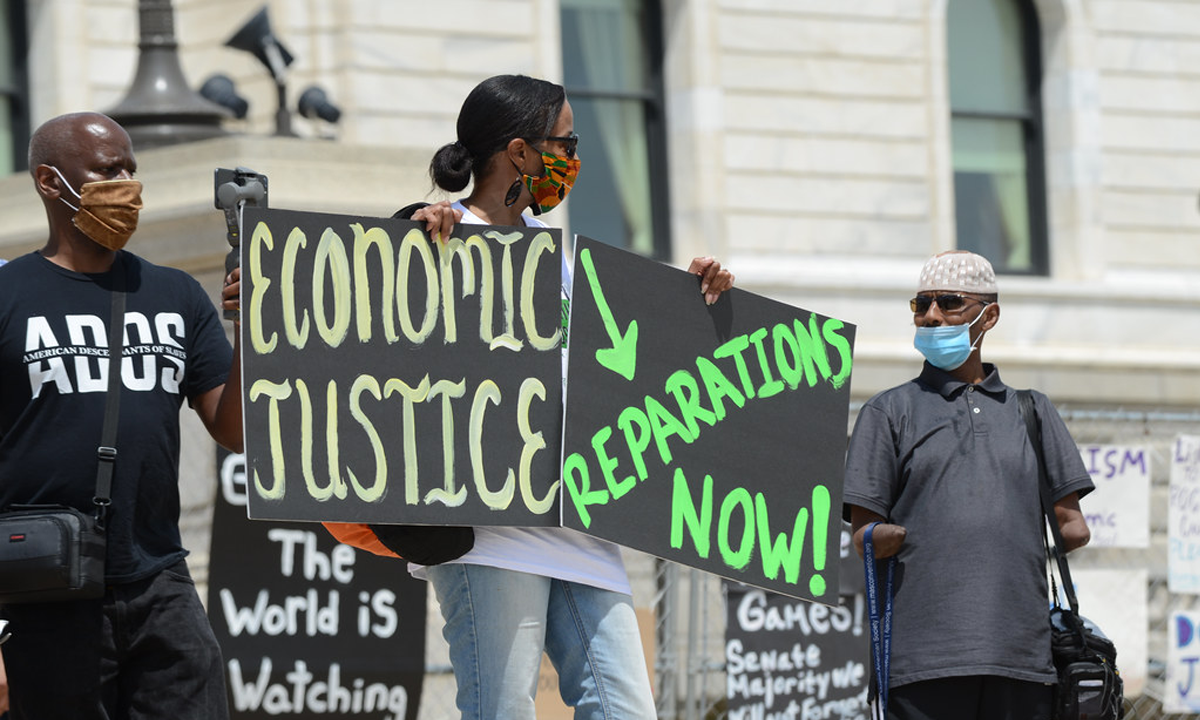California Gov. Gavin Newson has officially signed Assembly Bill 3121, titled “Task Force to Study and Develop Reparation Proposals for African Americans,” into law.
A nine-person team, all of whom are to be appointed exclusively by Democrats, would work to compile “the relevant corpus of evidentiary documents of the institution of slavery that existed within the United States and the colonies… [and] recommend, among other things, the form of compensation that should be awarded, the instrumentalities through which it should be awarded, and who should be eligible for this compensation.”
The bill, authored by Assemblywoman Shirley Weber, should not only be recognized as a blatantly obvious attempt by leading Democrats to virtue signal during a very tense moment in American history, but should also face scrutiny over its equally overly-ambitious and ethically-challenging goals.
We are to expected to believe that the Task Force will have the means and ability of putting together a complete list of names of slaves, taken from old and often incomplete nineteenth century documents, and then trace those names to their living descendants. The Task Force is meant to “recommend” from its research, so what of those Americans who are descended from both slave and slave owner? What of those many African Americans who aren’t actually descendants of slaves—recent African immigrants, for example?
The Task Force will inevitable come to a point in which it will have to separate African Americans into two camps: one considered more victimized by virtue of their ancestry and thus deserving of reparations, and the other considered as better off and not in need of government compensation, regardless of their individual circumstances.
Setting aside the extreme difficulties of compiling and recommending names, the question of whom exactly the descendants of slaves deserve reparations from will naturally be brought to the forefront of the issue. No American alive today has ever owned a slave, nor have their parents—and the great majority of Americans cannot claim to have a slave-owning ancestor. The accountable cannot be those of Hispanic or Asian descent, and it would be equally idiotic to blame the descendants of European immigrants who arrived after the institution of slavery was abolished. And regarding those Americans whose ancestors did own slaves, I defer to roving correspondent for National Review Kevin D. Williamson, who wrote in a 2019 article: “To ask white Americans with no personal connection to slavery to accept guilt for it by virtue of being white is to ask them to accept an idea that fundamentally alien to our political culture.”
AB 3121, for all the good its supporters claim it will do, is ultimately a waste of state resources, built around the idea that one man’s injustice will be corrected by imposing on another. And by focusing on America’s past, it takes away conversation from the very real issues affecting today’s African American community. In California, African Americans have been disproportionately homeless; COVID-19 lockdowns have led to the closing of countless African American-owned businesses, and has made more severe the already troubling unemployment numbers.
Perhaps if Democrats could find it in themselves to quit their virtue signaling, they could much better help the African American community with those existing challenges. That, however, is simply expecting too much from a Party that prospers from capitalizing on the grievances of others.




